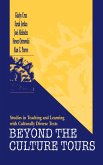This new edition of Eva Feder Kittay's feminist classic, Love's Labor, explores how theories of justice and morality must be reconfigured when intersecting with care and dependency, and the failure of policy towards women who engage in care work.
Hinweis: Dieser Artikel kann nur an eine deutsche Lieferadresse ausgeliefert werden.
Hinweis: Dieser Artikel kann nur an eine deutsche Lieferadresse ausgeliefert werden.
The publication of Eva Kittay's Love's Labor in 1999 was a significant event in American moral and political philosophy for more than one reason. First, Kittay's book puts issues of disability on the agenda of moral and political philosophy; second, it articulates some very persuasive and powerful criticisms of contractarian models of justice; third, it shows how good philosophy can help us think well about concrete political choices.
Finally, and not at all least, the book compels attention because of its moving and beautifully written account of Kittay's daughter Sesha. Kittay thus raises important questions about the role of the imagination of particulars in philosophy aimed at radical moral and social change.
- Martha Nussbaum, Ernst Freund Distinguished Service Professor of Law and Ethics at the University of Chicago
Twenty years ago Eva Kittay's book Love's Labor poignantly and persuasively argued that modern liberal states, and liberal philosophers, fail to recognize caregiving as essential human labor that sustains the species, and as work that deserves the protection of states, of rights, and of civil society. She then showed how liberal commitments can be reworked to center and protect that work. This edition further develops the argument in a global context, highlighting the often dire conditions of migrant and immigrant women who travel far from their own homes, separated from their kin, in order to care for first world children not their own. Kittay's book underscores the humanity and universality of carework, and the need to construct a just world that respects the needs of caregivers and their dependents worldwide.
- Robin West, Frederick J. Haas Professor of Law and Philosophy, Georgetown Law
Few books touch and expand the moral imagination as deeply and humanely as Love's Labor. Eva Feder Kittay carefully explores the grounds of interdependence and relationality in the human condition. She rejects facile notions of individualistic and competitive social being. She conjoins philosophy and feeling in the story of her personal confrontation with profound cognitive impairment in the life of her daughter, Sesha. This remarkable book of many methods opens for all of us new understandings of equality, social justice, and the practices of care.
- Bruce Jennings, Senior Advisor, The Hastings Center
Love's Labor was the first book to give sustained consideration to disability in the study of feminist care ethics. Arguing for the personhood of people with profound disabilities, it also made a compelling argument for why a just society must recognize the dignity and rights of care workers. In its unforgettable story of a mother's love for her daughter it shows the power of a philosophy grounded in lived experience, feeling, and attachment. Groundbreaking in its time, Love's Labor continues to be necessary reading for scholars working at the intersection of feminist theory, moral philosophy, and disability studies.
- Rachel Adams, Professor of English and Comparative Literature, Columbia University
Finally, and not at all least, the book compels attention because of its moving and beautifully written account of Kittay's daughter Sesha. Kittay thus raises important questions about the role of the imagination of particulars in philosophy aimed at radical moral and social change.
- Martha Nussbaum, Ernst Freund Distinguished Service Professor of Law and Ethics at the University of Chicago
Twenty years ago Eva Kittay's book Love's Labor poignantly and persuasively argued that modern liberal states, and liberal philosophers, fail to recognize caregiving as essential human labor that sustains the species, and as work that deserves the protection of states, of rights, and of civil society. She then showed how liberal commitments can be reworked to center and protect that work. This edition further develops the argument in a global context, highlighting the often dire conditions of migrant and immigrant women who travel far from their own homes, separated from their kin, in order to care for first world children not their own. Kittay's book underscores the humanity and universality of carework, and the need to construct a just world that respects the needs of caregivers and their dependents worldwide.
- Robin West, Frederick J. Haas Professor of Law and Philosophy, Georgetown Law
Few books touch and expand the moral imagination as deeply and humanely as Love's Labor. Eva Feder Kittay carefully explores the grounds of interdependence and relationality in the human condition. She rejects facile notions of individualistic and competitive social being. She conjoins philosophy and feeling in the story of her personal confrontation with profound cognitive impairment in the life of her daughter, Sesha. This remarkable book of many methods opens for all of us new understandings of equality, social justice, and the practices of care.
- Bruce Jennings, Senior Advisor, The Hastings Center
Love's Labor was the first book to give sustained consideration to disability in the study of feminist care ethics. Arguing for the personhood of people with profound disabilities, it also made a compelling argument for why a just society must recognize the dignity and rights of care workers. In its unforgettable story of a mother's love for her daughter it shows the power of a philosophy grounded in lived experience, feeling, and attachment. Groundbreaking in its time, Love's Labor continues to be necessary reading for scholars working at the intersection of feminist theory, moral philosophy, and disability studies.
- Rachel Adams, Professor of English and Comparative Literature, Columbia University








